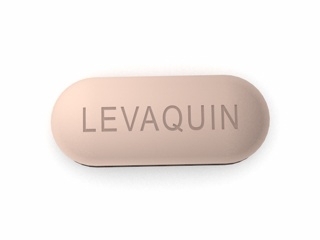New Viagra Effect: Save Your Brain
Viagra is the brand name of a medication whose main active ingredient is sildenafil. It is used to treat erectile dysfunction (impotence) in men, a condition in which a man is unable to achieve or maintain an erection sufficient for sexual intercourse.
Key Characteristics of Viagra:
Active Ingredient: Sildenafil citrate.
Mechanism of Action: Sildenafil is an inhibitor of the enzyme phosphodiesterase type 5 (PDE-5). This enzyme breaks down cyclic guanosine monophosphate (cGMP), which plays a key role in the relaxation of smooth muscles in the blood vessels of the penis. During sexual stimulation, the body releases nitric oxide (NO), which activates an enzyme leading to the formation of cGMP. Sildenafil increases the levels of cGMP, helping to dilate blood vessels and increase blood flow to the penis, thereby allowing you to achieve and maintain an erection.
Usage:
Viagra is taken orally in the form of tablets approximately 30 to 60 minutes before planned sexual activity. The effect of the medication lasts about 4 to 6 hours. It does not cause a spontaneous erection; sexual stimulation is necessary for the drug to take effect.
Side Effects:
The most common side effects include headaches, facial flushing, upset stomach, nasal congestion, dizziness, and blurred vision. More serious but rare side effects can include a sudden drop in blood pressure, which is particularly dangerous for people taking nitrates.
History and Availability:
Viagra was first approved in 1998 and was the first oral treatment for erectile dysfunction. Today, many analogs and generic versions of sildenafil are available under different brand names.
Other Uses:
In addition to treating erectile dysfunction, sildenafil is also used to treat pulmonary arterial hypertension (Revatio).
How Does Viagra Affect Blood Vessels?
Viagra primarily affects blood vessels due to its ability to inhibit the enzyme phosphodiesterase type 5 (PDE-5), leading to the relaxation of vascular smooth muscles and improved blood flow. Here’s how the process works:
Mechanism of Action: Viagra blocks the action of PDE5, an enzyme responsible for breaking down cyclic guanosine monophosphate (cGMP). cGMP is an important substance that promotes the relaxation of smooth muscles in the walls of blood vessels. During sexual stimulation, the body releases nitric oxide (NO), which stimulates the production of cGMP in the penile tissues. An increase in cGMP levels leads to the relaxation of smooth muscles, dilation of blood vessels, and increased blood flow to the penis, ensuring an erection.
Effect on Blood Vessels:
The primary effect of Viagra is to dilate the blood vessels in the penis, which increases blood flow and helps achieve and maintain an erection. Additionally, sildenafil can also affect other blood vessels in the body. It can cause vasodilation in the lungs, which is used in the treatment of pulmonary arterial hypertension.
Side Effects Related to Blood Vessels:
Viagra can cause a temporary decrease in blood pressure due to vasodilation. This may lead to headaches, flushing, or dizziness. In rare cases, patients may experience a more severe drop in blood pressure, especially when Viagra is combined with other medications such as nitrates, which also dilate blood vessels.
Therapeutic Use:
In addition to being used to treat erectile dysfunction, Viagra is also used to treat pulmonary arterial hypertension due to its ability to dilate blood vessels in the lungs and reduce pressure in the pulmonary arteries. Thus, Viagra acts on blood vessels by dilating them and improving blood circulation in target areas, effectively combating erectile dysfunction and other vascular disorders.
What Effect Does Viagra Have on Dementia?
Research on the effect of Viagra (sildenafil) on dementia is based on its vascular and neuroprotective effects. Here’s how it is connected:
Improving Blood Flow and Preventing Neurodegeneration: Viagra improves blood flow by dilating blood vessels and increasing blood flow to various organs, including the brain. One hypothesis for the development of dementia, particularly vascular dementia and Alzheimer’s disease, is the disruption of blood supply to the brain, leading to a lack of oxygen and nutrients necessary for normal neuronal function. Improving circulation can help prevent or slow the progression of these diseases.
Antioxidant and Anti-inflammatory Properties: Sildenafil may also have antioxidant and anti-inflammatory properties that reduce levels of inflammation in the brain. Chronic inflammation is associated with neuronal damage and the development of dementia, particularly Alzheimer’s disease. Reducing inflammation may slow cellular damage and the development of cognitive disorders.
Research and Clinical Data: Recent studies show that patients taking Viagra had a lower risk of developing dementia. A large 2021 study found that men taking Viagra had a 69% lower risk of developing Alzheimer’s disease than those who did not. However, these data are observational, and additional clinical studies are needed to confirm a direct association and elucidate the mechanisms of this protective effect.
Cellular Level Mechanisms: It is suggested that sildenafil may influence the formation and accumulation of beta-amyloid proteins, which are markers of Alzheimer’s disease. Reducing the accumulation of these proteins may lower the risk or slow the progression of the disease.
Thus, the connection between Viagra’s vascular effects and its potential anti-dementia effects lies in improving cerebral blood flow, reducing inflammation, and potentially affecting pathological processes leading to neurodegeneration.













